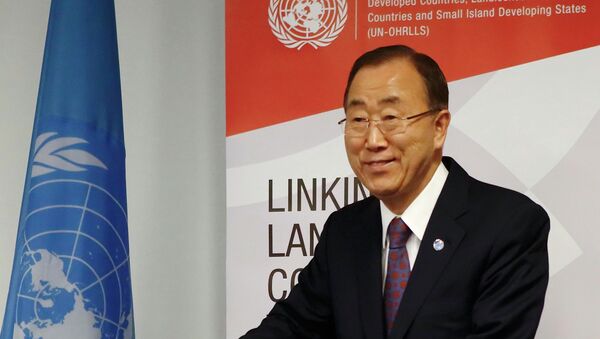UNITED NATIONS, November 3 (RIA Novosti) —United Nations could help the landlocked developing countries (LLDCs) with increasing their exports and reducing the costs of their imports, UN Secretary General Ban Ki-moon said Monday.
"The world's new plans to address global challenges must take account of conditions in landlocked developing countries," Ban said at the Second UN Conference on Landlocked Developing Countries. He added that since the Program of Action was adopted in the city of Almaty, Kazakhstan eleven years ago "landlocked developing countries have exported more merchandise, and increased their share of trade," the transportation costs remain too high. "Export income is limited, and imports are expensive," Ban said.
Laying out a plan, Ban said that stronger partnerships are needed on three levels. "First, between landlocked developing countries, transit countries and development partners. Second, through South-South cooperation with other developing States. And third, through international trade, investment and connectivity with the rest of the world."
After listing his three point plan, Ban mentioned what the UN is already doing in different continents. "We are helping countries in Eastern Europe and Central Asia to compete and trade with each other. We are assisting African countries to diversify their products. We are supporting Latin American States to move their goods up the value chain. We are advising Asian countries on how to ensure that new trade opportunities advance human development," UN Secretary General said.
According to UN, some 430 million people currently live in the world's 31 landlocked developing countries. Remoteness and isolation from the world markets make the LLDCs to incur substantially higher trade transaction costs when compared to coastal states.
The Second United Nations Conference on LLDCs is being held from November 3 to November 5 in Vienna, Austria. The conference' participants which include government officials, international organizations and the private sector are expected to come up with a development agenda for the landlocked developing countries for the next decade.



